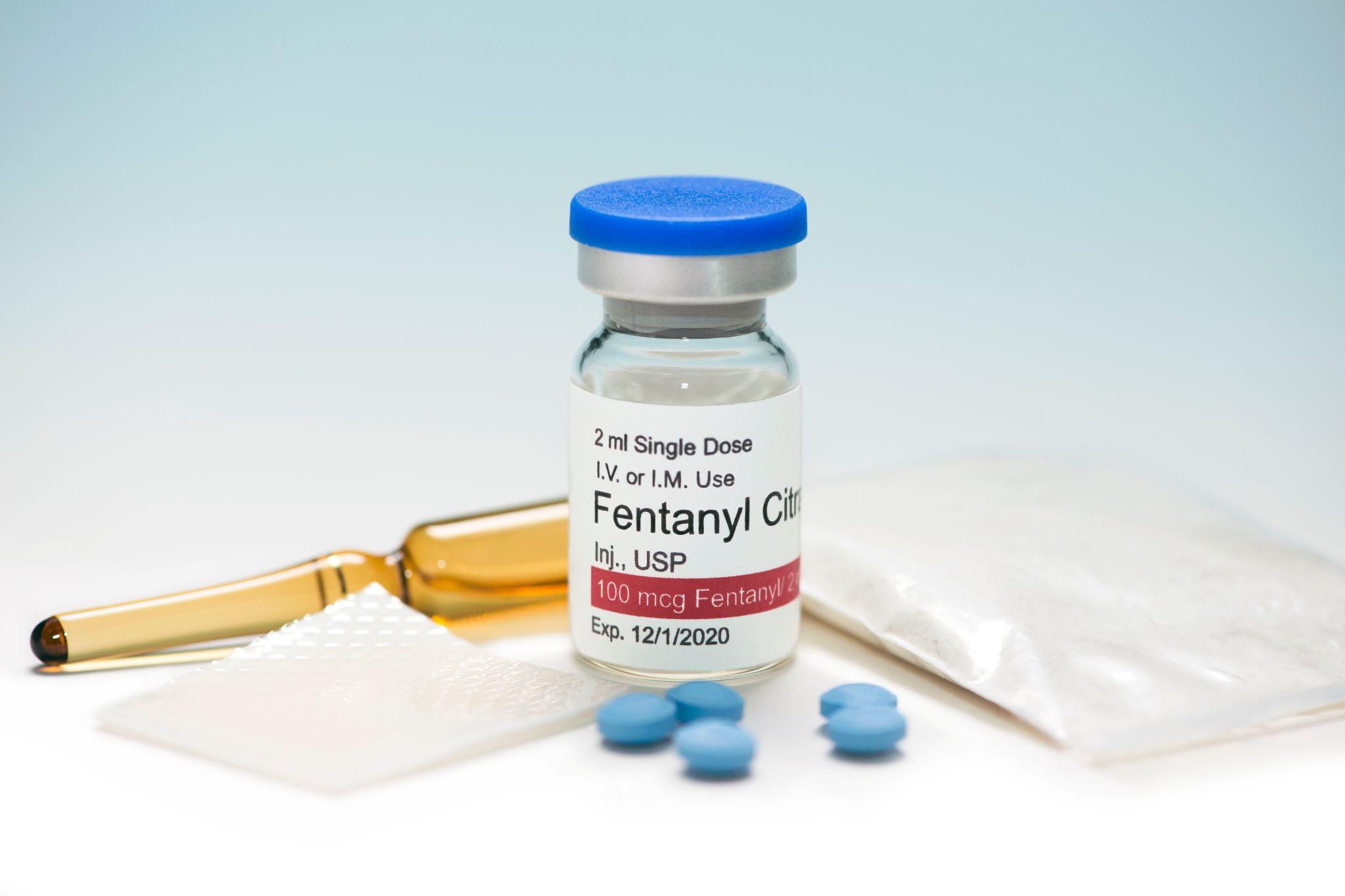Fentanyl, a synthetic opioid with the street name Dance Fever, has gained notoriety as one of the most potent and addictive substances in the opioid class. It is mainly prescribed for the management of chronic pain, especially after surgery and for patients with cancer pain.
Learning about the science behind fentanyl’s high potential for addiction, exploring how it interacts with the brain, its effects on the body, and why it poses such a significant risk for dependency and abuse is very important in understanding the addictiveness of fentanyl.
Lumina Recovery aims to provide a comprehensive understanding of fentanyl’s addictive properties, helping individuals become more aware and equipped to address this growing challenge.
How does fentanyl work?
Fentanyl acts on the central nervous system to provide pain relief and a sense of euphoria. When it enters the body, fentanyl binds to opioid receptors, primarily located in the brain, spinal cord, and other organs. These receptors are part of the body’s endogenous opioid system, which regulates pain, reward, and addictive behaviors.
The binding of fentanyl to these receptors triggers a release of dopamine in the brain’s reward pathways. Dopamine is a neurotransmitter associated with pleasure and satisfaction. This surge in dopamine not only alleviates pain but also produces a profound state of euphoria and relaxation, which is more intense than what is experienced with many other illegal drugs like heroin and cocaine.
The rapid onset of fentanyl’s effects is due to its high lipid solubility, allowing it to cross the blood-brain barrier more quickly than other opioids. This quick entry into the brain results in an immediate and powerful effect, contributing to its potential for misuse and addiction.
Additionally, fentanyl’s effects are short-lived, which can lead to frequent dosing and a higher risk of developing tolerance and dependence.
Why is fentanyl so addictive?
Fentanyl’s highly addictive nature can be attributed to several factors. Firstly, its potency is unparalleled when compared to other opioids. Being 50 times more potent than heroin and 100 times stronger than morphine, it can create an intense euphoric experience.1 This high level of potency means that smaller amounts of fentanyl can elicit strong effects, increasing the risk of addiction after only a short period of use.
Secondly, the rapidity with which fentanyl affects the brain plays a crucial role in its addictiveness. As fentanyl quickly crosses the blood-brain barrier, users experience an immediate and intense high. This rapid onset of effects is psychologically reinforcing, encouraging repeated use as the body and mind begin to associate fentanyl with immediate and powerful relief or pleasure.
The cycle of addiction to fentanyl is also accelerated by the development of tolerance. As users become habituated to the drug, they require increasingly larger doses to achieve the same level of euphoria or pain relief. This escalation in dosage not only increases the risk of addiction but also the likelihood of an overdose.
Moreover, fentanyl’s chemical structure allows it to bind very tightly to opioid receptors, creating a more pronounced effect. This strong binding contributes to the drug’s effectiveness in pain relief but also to its high addictive potential. The intense euphoria that follows fentanyl use can make the experience highly desirable, leading to compulsive drug-seeking behavior.
Finally, the psychological aspects of addiction are significant with fentanyl use. The drug can serve as a means of escape from emotional or psychological pain, creating a psychological reliance. This reliance, coupled with physical dependence and tolerance, creates a powerful cycle of addiction that can be difficult to break.
How does physical and psychological dependence develop?
Physical dependence on fentanyl develops when the body becomes accustomed to its presence and starts to rely on it to function normally. This dependency manifests as withdrawal symptoms when the drug is not taken, which can include pain, sleep disturbances, irritability, and flu-like symptoms. The severity of these symptoms often drives individuals to continue using the drug to avoid discomfort.
Psychological dependence, on the other hand, is characterized by a mental craving or compulsion to use fentanyl. This can stem from the desire to re-experience the euphoria it provides or to escape reality. Psychological dependence often involves emotional and behavioral changes, such as anxiety, depression, or social withdrawal, especially in the absence of the drug.
What is the risk of overdose?

The risk of overdose with fentanyl is exceptionally high due to its potency. Small miscalculations in dosage can lead to a lethal overdose. Symptoms of a fentanyl overdose include severe respiratory depression like slowed breathing, loss of consciousness, and reduced heart rate.
The high risk of opioid overdose is compounded when fentanyl is mixed with other substances, especially depressants like alcohol or benzodiazepines, as this can exacerbate its effects.
Naloxone is a nasal spray that can be used to reverse fentanyl overdoses. It binds to opioid receptors in the brain and reverses or blocks the effects of other opioids including fentanyl. In cases of overdose, it is imperative to call 911 or emergency medical services immediately.
What are treatment options for fentanyl addiction?
Treatment for fentanyl addiction typically involves a comprehensive approach. Medication-assisted treatment (MAT) is a cornerstone of this approach, utilizing medications such as methadone, buprenorphine, or naltrexone to manage withdrawal symptoms and reduce cravings. These medications help stabilize the patient, allowing them to engage more effectively in other treatment modalities.
Counseling and behavioral therapies are critical components of treatment. They address the psychological aspects of addiction, helping individuals understand the root causes of their substance use, develop coping strategies, and rebuild healthy life patterns. Support groups and peer support programs also play a vital role, offering a community of individuals who understand the challenges of recovery and can provide ongoing support.
Get Support for Fentanyl Addiction With Lumina Recovery
Fentanyl’s high potency and rapid onset of action make it incredibly addictive and dangerous. Recognizing the signs of addiction and seeking timely treatment are crucial steps in addressing this growing concern.
Lumina Recovery offers medication-assisted treatment (MAT) and opioid and fentanyl addiction programs to help those struggling with addiction.
Our team of professionals is here to help you or your loved ones. Contact us today to learn more.
Sources:



